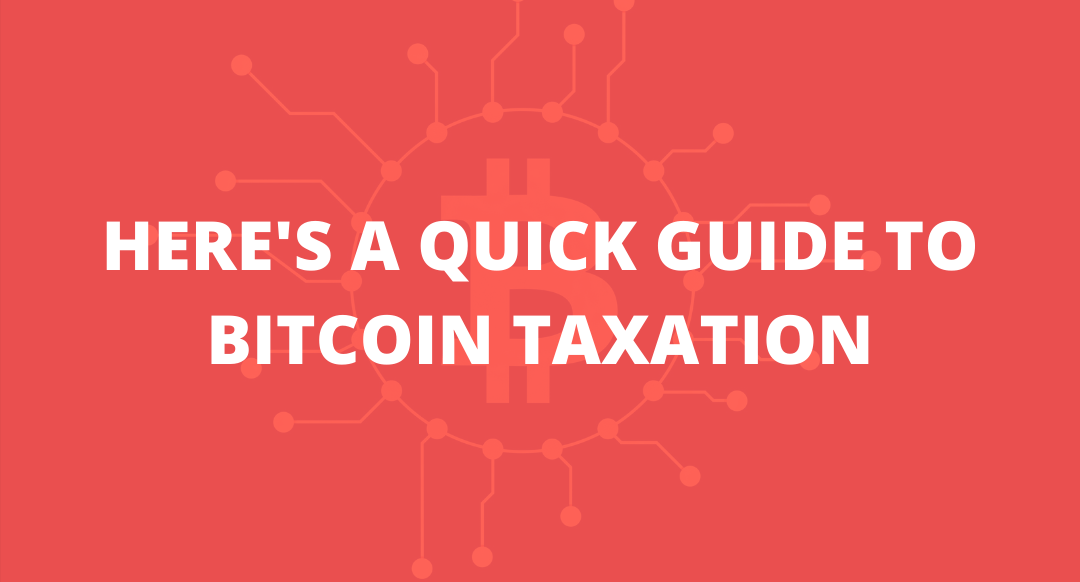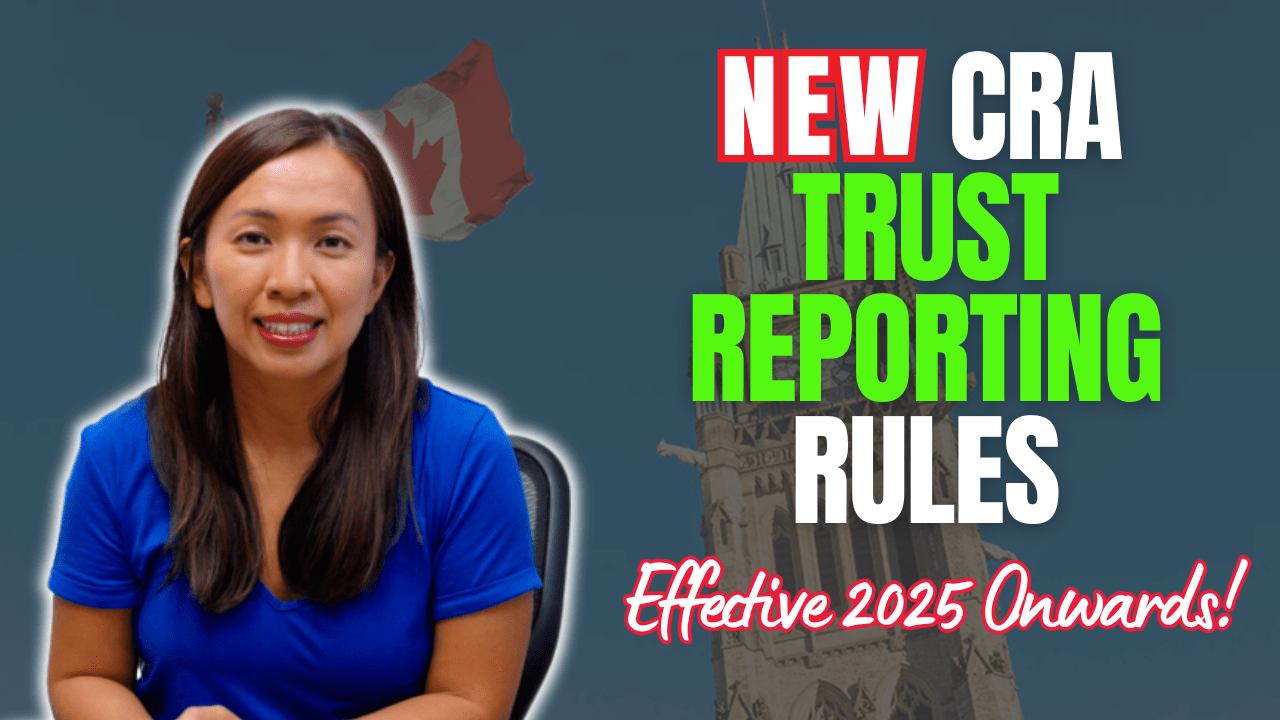Here’s a Quick Guide to Understand Bitcoin Taxation

Happy New Year.
We celebrated my daughter’s birthday over the holidays, I couldn’t believe she turned 7 already!
It’s unfortunate that we have to start our new year in a lockdown. I’m very grateful that my kids are enjoying their virtual learning. They feel that they’re all of sudden grown-ups, using mommy and daddy’s laptops.
We kicked off the new year with some new team members in our office and a commitment to an 8 week lean muscle challenge at our gym.
Of course, if you already setup your PREC and you’re expecting to save a bunch of taxes this coming year, you might want to find out how you can invest this money.
For real estate investors out there, my team is putting a webinar together in the next couple of weeks. Just so we can provide some insight as to whether you should setup a corporation to own your portfolio or not. Stay tuned.
Now onto this week’s topic…
We’re wealth hackers, not just real estate investors. As the governments around the world are printing more money to stimulate the economy and provide bail outs to businesses, someone somehow at some point would have to pay for it.
The theory is that the paper money that we are transacting today would lose its value and ultimately all of us are going to pay for it eventually.
In another words, holding cash, also known as the paper money, means our wealth is depreciating as the governments print more money.
If you don’t want your hard-earned cash to depreciate, or better yet, if you want your hard earned cash to work hard for you, many smart people around me are looking for things to invest so that it can keep its value.
Many purchased real estate. Some did shares. Public companies are buying back their shares in the open market. Some ventured out to digital currency.
The most popular one today is Bitcoin, as bitcoin supply is limited, unlike paper money. Only 21 million Bitcoin can exist. No one knows quite why that limit was set and we likely never will considering the creator of Bitcoin is unknown. So, the race is on to buy equipment that can mine Bitcoin before it runs out. Take a look at https://medium.com/@jimmykiddmining/review-for-coin-mining-central-scam-or-legit-6ec245d9f43 to find out more about this. Many countries have started accepting digital currencies for bank transactions. The National Australia Bank, for instance, was one of the first bitcoin-friendly national banks. However, NAB decided to close all bitcoin accounts in May 2014 after a review on cryptocurrency stated its risk on NAB and its reputation. Even though NAB cryptocurrency is impossible, there are several other fast and safe ways of acquiring Bitcoin in Australia using NAB bank accounts. Swyftx, for example, is a bitcoin exchange platform based in Melbourne. Every government has its own regulation when it comes to crypto transactions. So, coming back to the Canadian bitcoin investment scenario, what are we meant to do if we accept/profit off Bitcoin?
What is the tax implication of digital currency?
CRA is exceptionally busy these days making sure no one is getting any benefits that they are not supposed to be getting.
They have some general guideline provided on the tax implication, but there’re still many holes in the current CRA position with respect to taxation on digital currency.
There’re three common ways to use and invest in digital currency.
- Using bitcoin (or digital currency) to exchange for goods/services
- Buying bitcoin (or other digital currency) and selling them later for profit/loss
- Mining bitcoin
Let’s have a brief overview on each implication.
- Using bitcoin/digital currency to exchange for goods/services
Some businesses are starting to accept bitcoin/digital currency in exchange for goods and services, even though CRA does not consider bitcoin as a legal tender yet.
Receiving bitcoin/digital currency for services/goods provided is considered a barter transaction.
Even if you receive bitcoin (in replacement of actual paper Canadian dollars) as business owners, you’re still supposed to report the Canadian dollar equivalent amount on your tax returns for the goods/services provided.
By the same token, you are still required to charge HST (sales tax) on the goods and services you provided.
If you receive bitcoin/digital currency from selling a property (disclaimer: I am not sure if it is legal in Canada yet), the sales proceed of your property is the Canadian dollar equivalent of the amount of bitcoin you receive in the exchange.
You are still required to report the disposition of the property on your return.
If you buy goods/services using bitcoin/other digital currency, you’re still required to pay HST on the purchase. If you buy properties using bitcoin/other digital currency, the tax cost of purchasing the property is the Canadian dollar equivalent of the amount of bitcoin/digital currency that you pay.
- Buying bitcoin (or other digital currency) and selling them later for profit/loss
Many investors who buy Bitcoin with credit card or any other means might be using bitcoins as a way to store the value of money.
Many of them are planning to hold their assets long-term, just to safeguard against the collapse of paper money system.
If you are investing in bitcoins long-term, the act of buying itself does not impose any tax implication.
When you sell the bitcoins sometime in the future, it’s likely that your profit is considered capital gain.
Currently capital gain is 50% taxable. So 50% of what you make from selling bitcoins would be taxable.
If you are trading bitcoins on a daily basis, and showing day trading behaviour, the profit you make can be considered income in the eyes of CRA.
Income is 100% taxation. Profit from selling bitcoins would be 100% taxable at your marginal tax rates.
If you are holding bitcoins/digital currency in excess of $100K Canadian dollars outside of Canada, you have reporting responsibility on your tax returns.
Be sure to report that on your T1135 Statement of your annual return.
- Tax implication of mining bitcoins
Admittedly, I have very limited knowledge in this area. I’ve had one client who considered mining bitcoins and he subsequently abandoned the idea.
Tax implication on mining can vary, depending on whether you are treating it as a hobby or a business.
If you are mining as a business, the income generated is taxed 100%. All the related cost of operating this business can be deducted.
Regardless of what you do, it’s always best to keep all your receipts and records.
In that case, regardless of what the tax law is on digital currency, you have all the supporting documentation required.
Until next time, happy Canadian Real Estate Investing.
Cherry Chan, CPA, CA
Your Real Estate Accountant






B
Hi cherry. Contact me at your earliest convenience